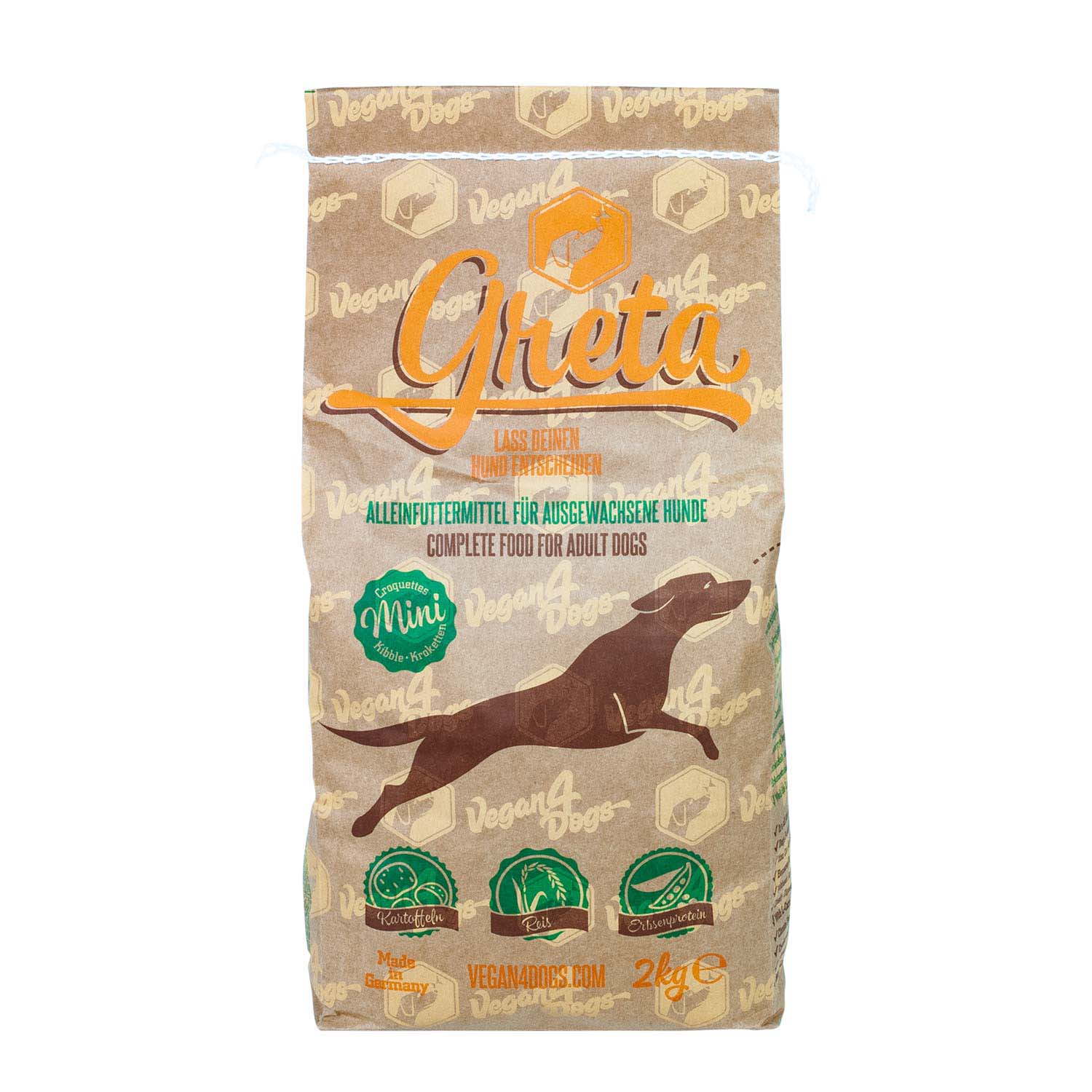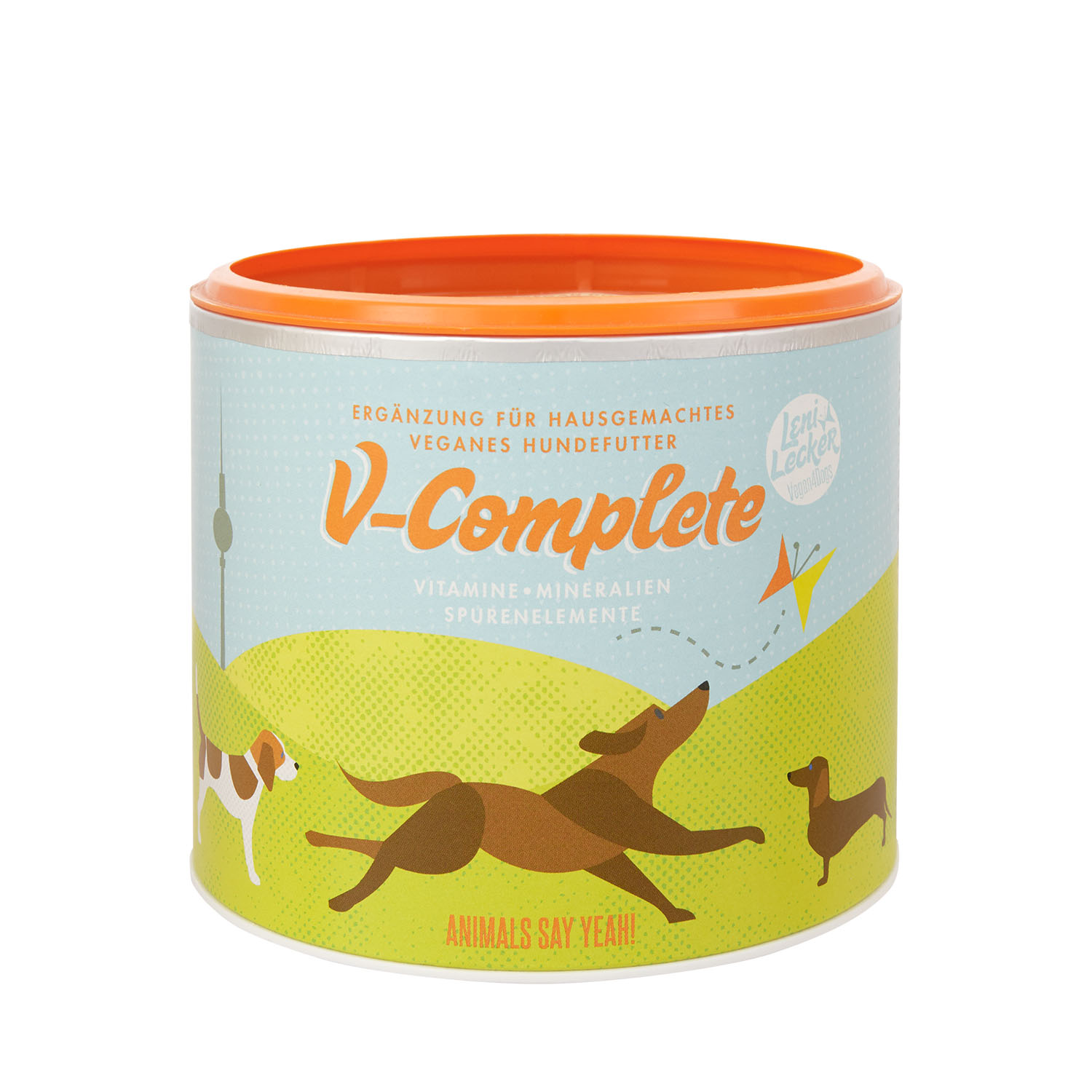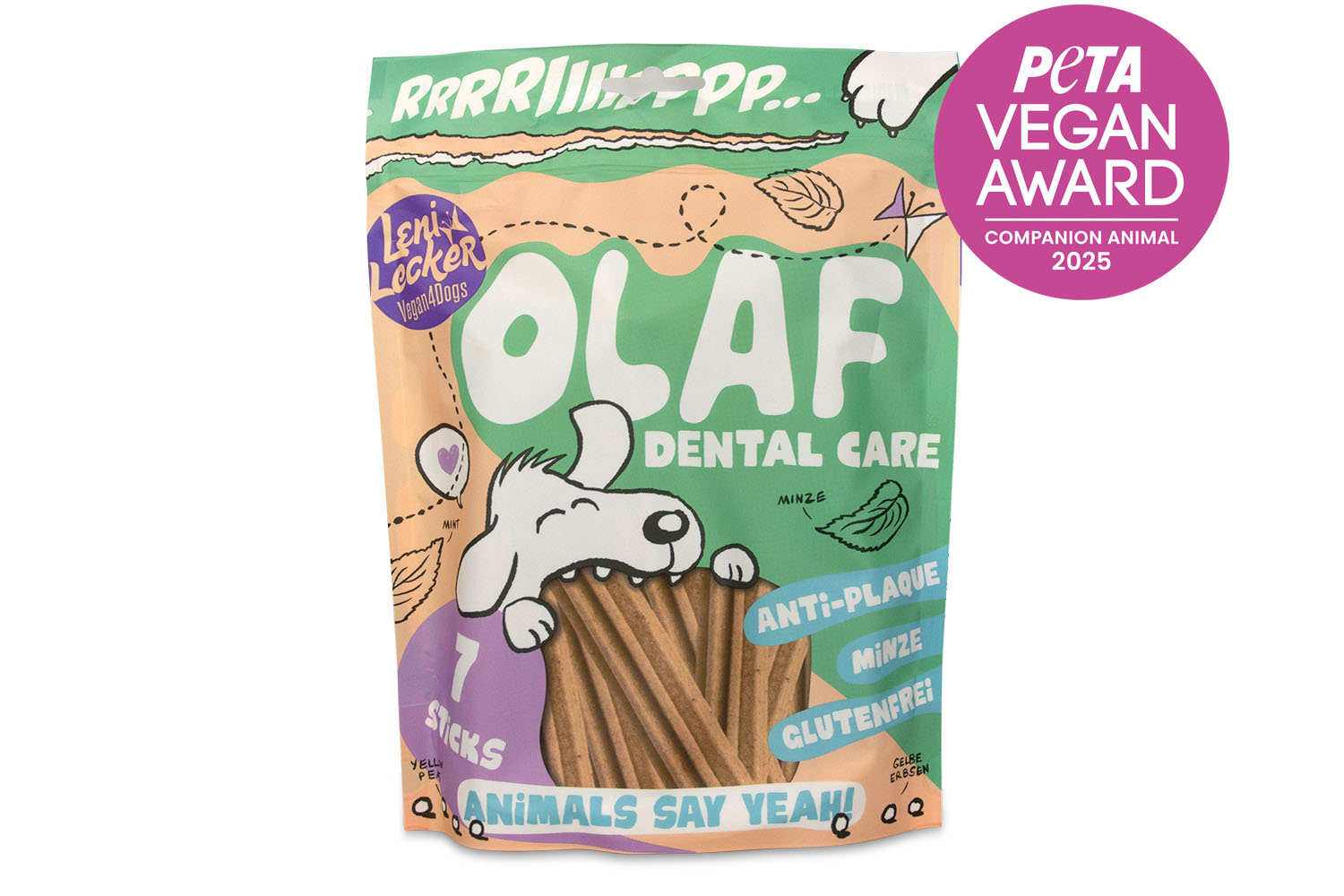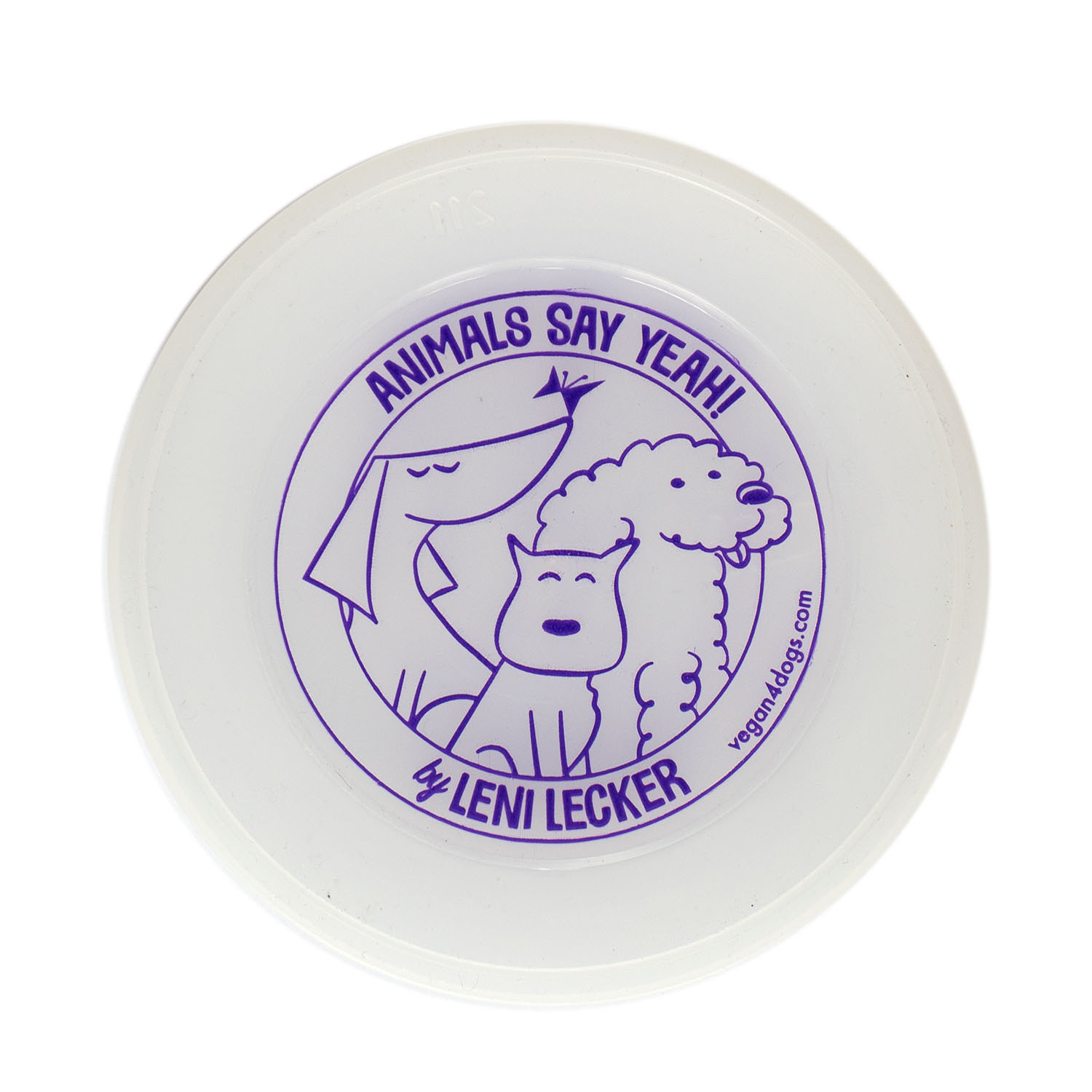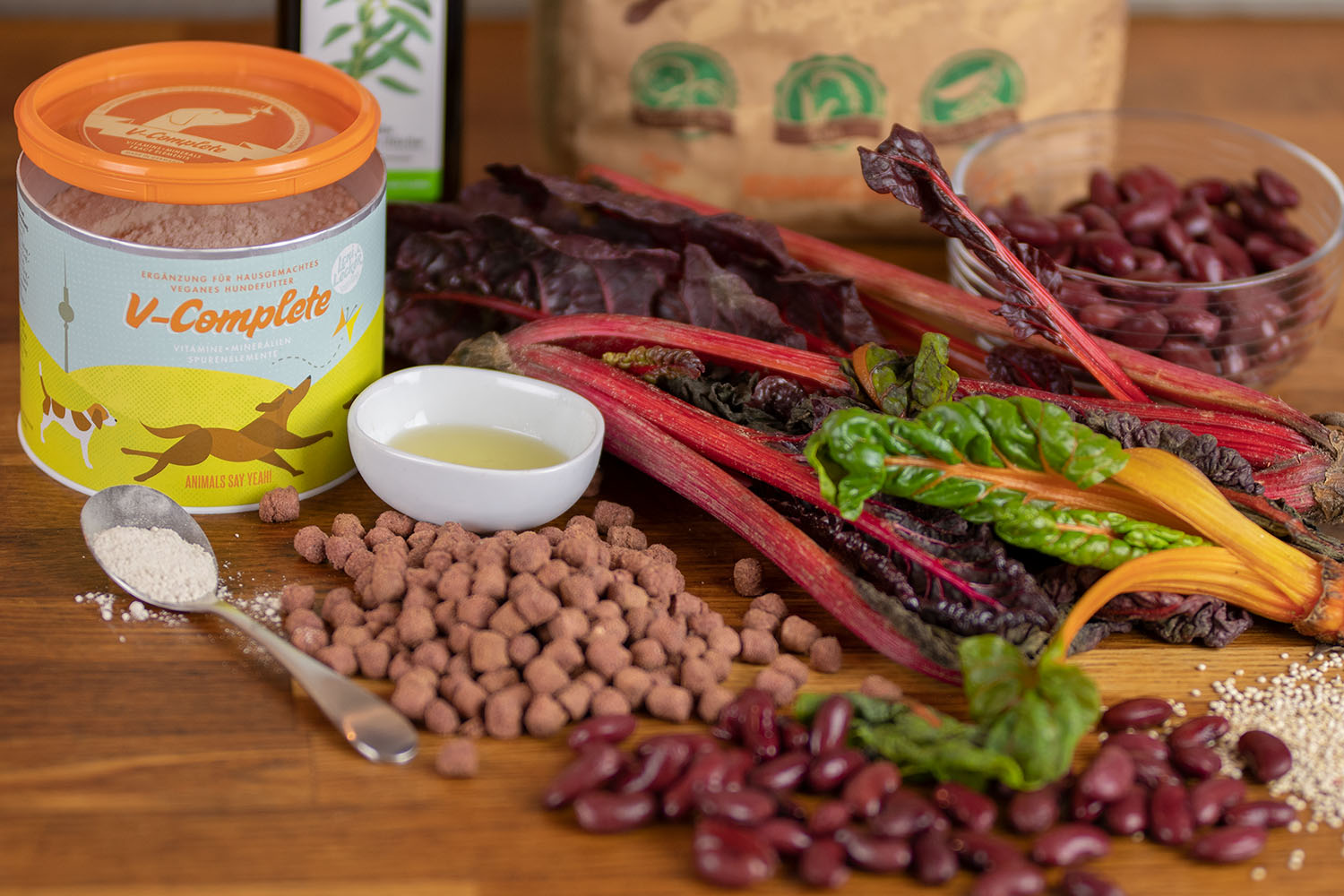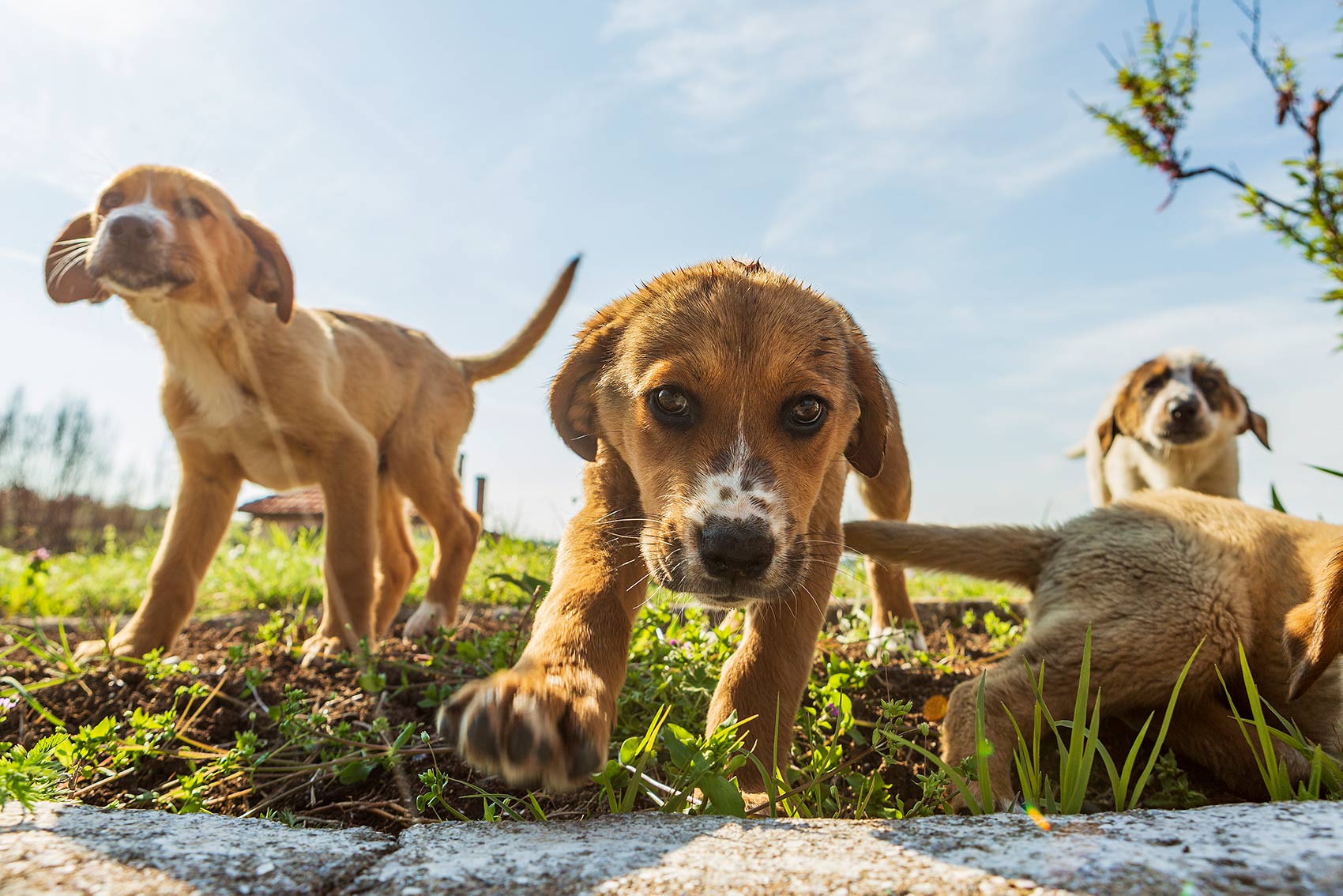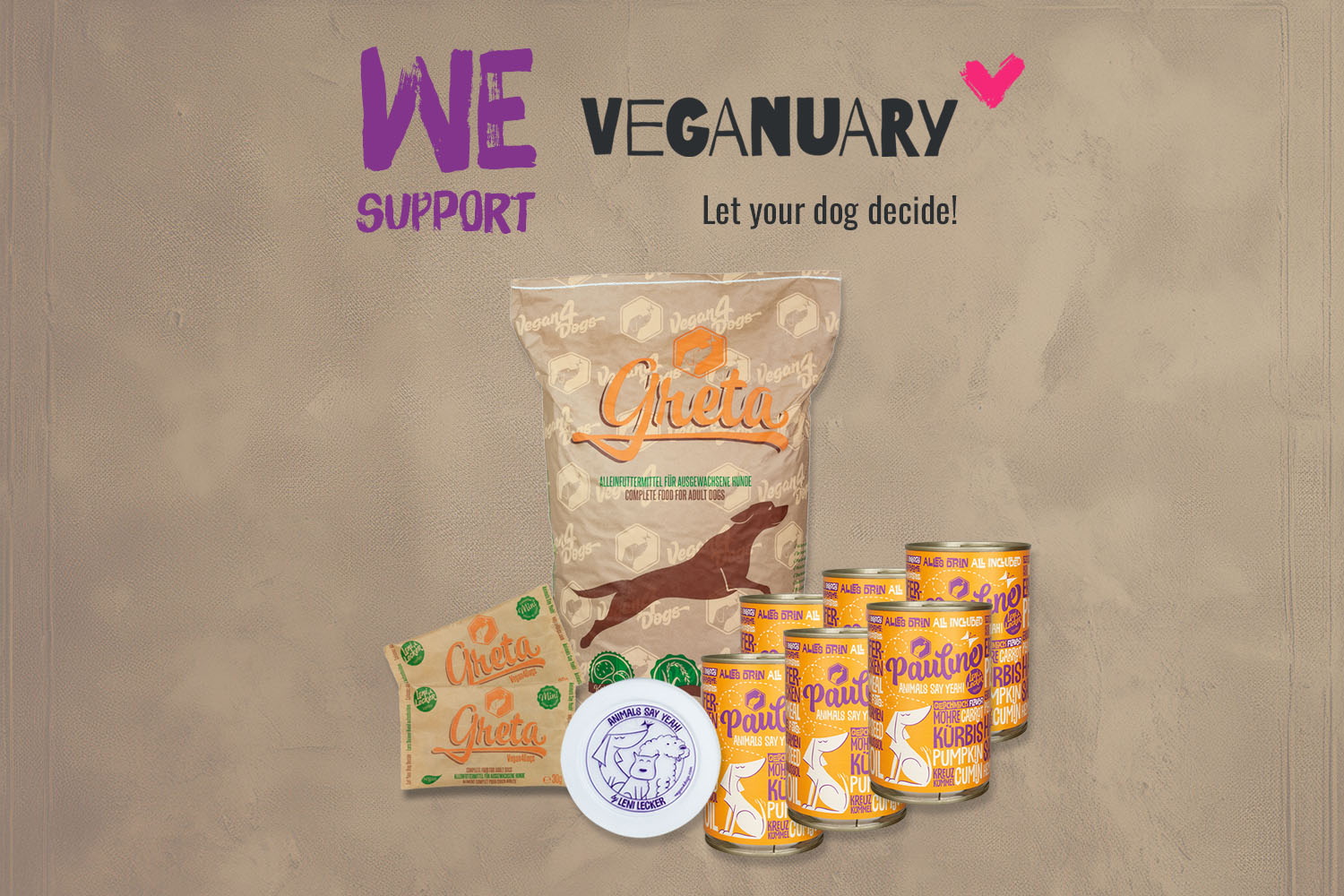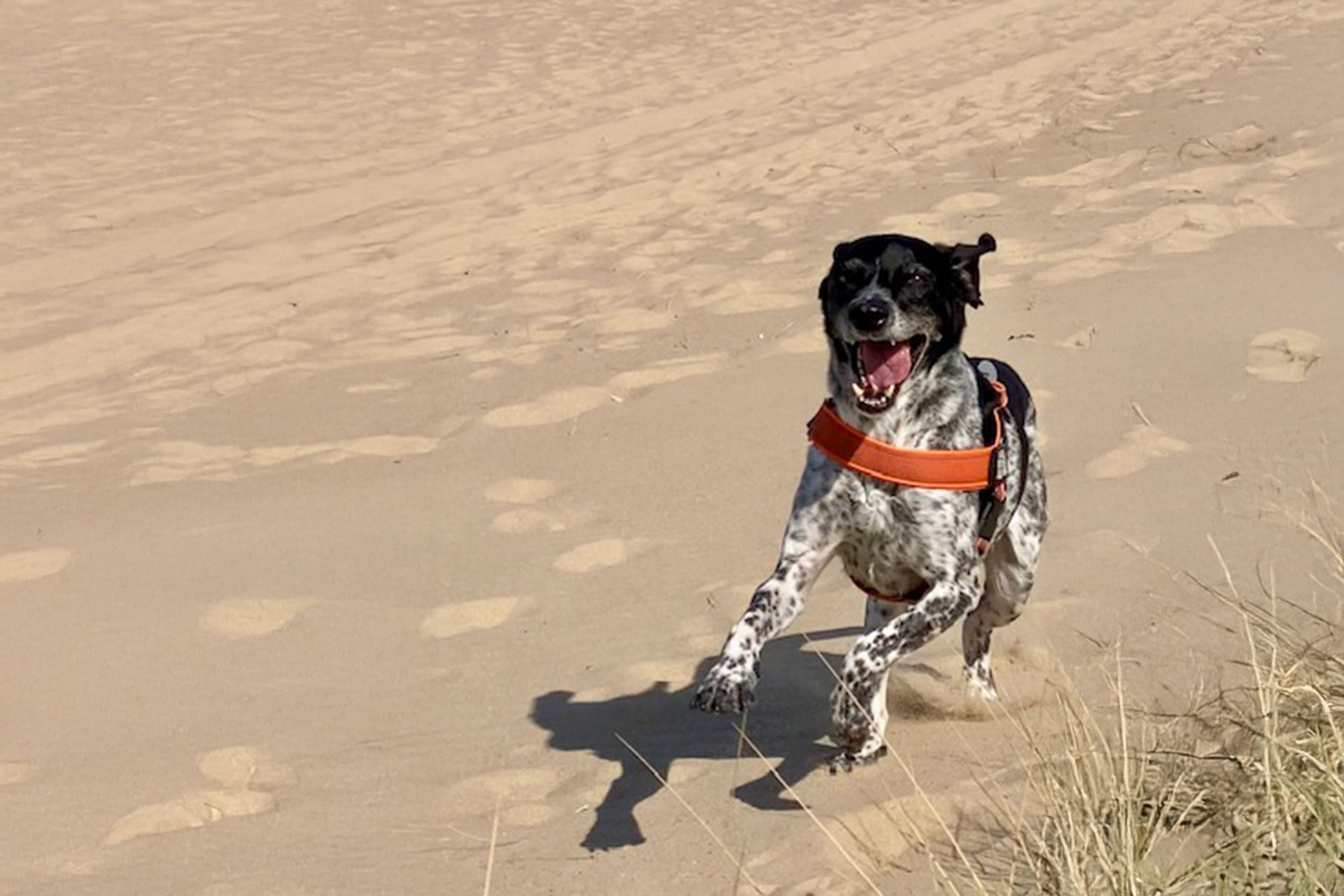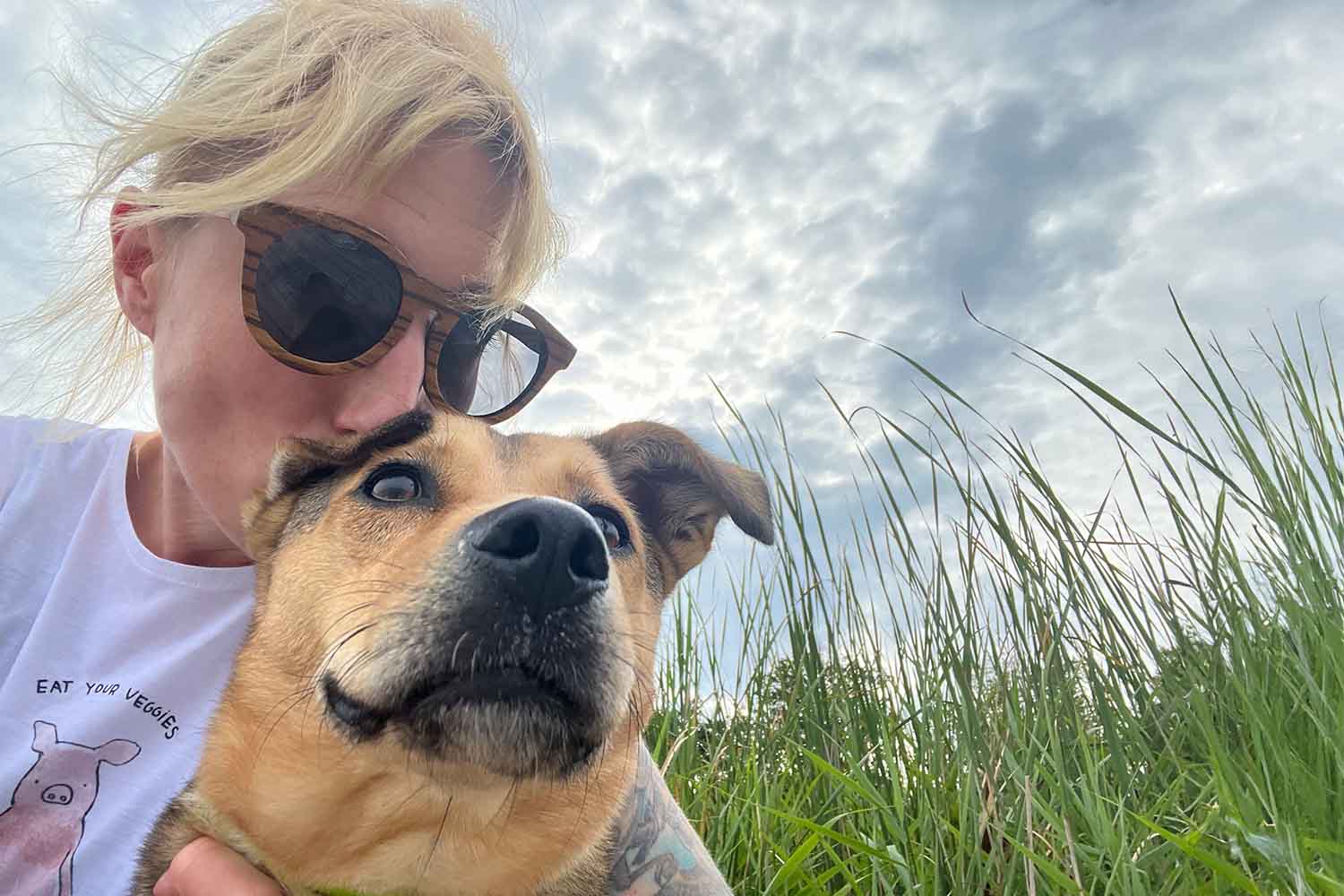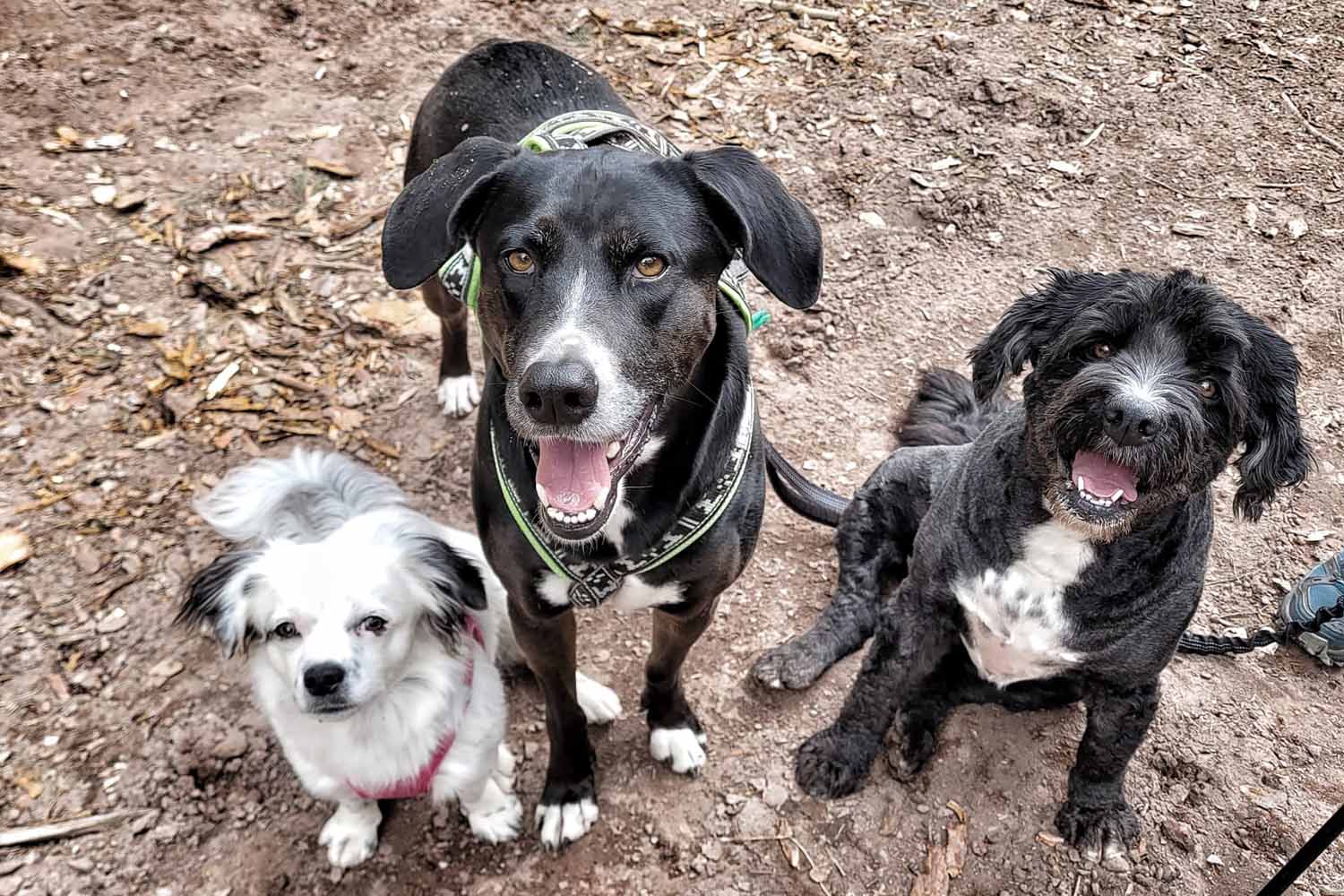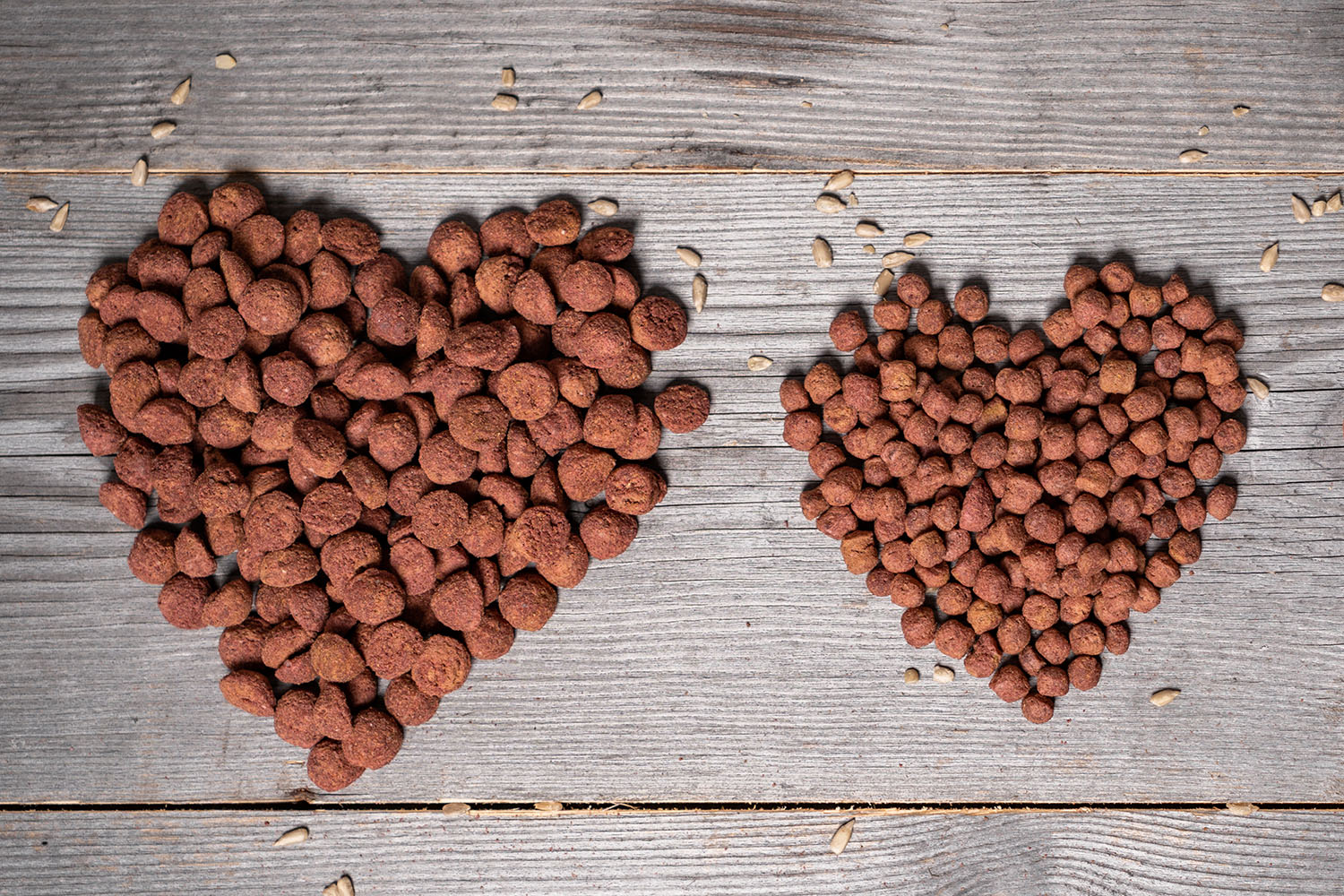
Leni Lecker at "Tiere suchen ein Zuhause"
We are pleased, the vegan dog nutrition made it once more into the public television, which is already times reason for the joy, since the topic moves obviously ever more into the broad public. A few years ago that was still quite unusual. Since such a contribution is always cut together naturally also many answers fall out, some important I would like to take up here however gladly again, since the contribution appears to me otherwise too unbalanced. For my taste, the really important answers were omitted, which also refer to the answers of the veterinarian.
Point One
The frequently mentioned slaughter by-products make the meat industry lucrative. Just think, the great guts like heart, kidneys and liver would have to be thrown away. Not only would the industry miss out on some money, it would even have to raise money to dispose of them. In addition, the components used to be consumed by humans themselves. Today humans do not like to eat this however any longer, so it is nevertheless great that this can be made in the fodder industry to money. In many conventional dog foods are 'animal by-products' contained. These do not have to be declared at all more closely (applies by the way just as for 'vegetable by-products'), I can not determine whether it is really the valuable organs, or nevertheless around horns, feathers etc..Point Two
The veterinarian speaks of the species-appropriate or the species corresponding diet. In addition one must say that ultimately always the owner decides what the dog gets to eat, whether it is vegan or not. In addition it comes that today's dogs have relatively little to do with the wolf, if one looks at the races bred by humans after its needs. The fewest dogs would probably hunt a cow or pig to supply themselves. However, these are definitely included in common dog foods. Nowadays it is not even unusual to feed your dog with kangaroo or horse which leads me to point three:Point Three
The health aspect. We have noticed that there is also a large percentage of people who feed their dog vegan for health reasons, because the dog does not tolerate animal ingredients. The number of these dogs is increasing. Thus the picture turns around. The dog not only benefits from the vegan diet, it is a health necessity for him.Point Four
The lack of long-term studies. These do not exist, because the industry, neither the feed nor the meat industry, is interested in them and accordingly does not finance them. However, since it is still a young field of research, I am quite sure that the studies will not be long in coming, financed by advocates of vegan dog nutrition. There are now also more and more theses on the subject and interest continues to grow. Last but not least, I was surprised that Maike, the presenter was so high on the risks. It is not quite clear to me which ones she is referring to. Deficiency symptoms are also possible with a conventional diet, and if you feed a (vegan) complete food, it should provide all the necessary nutrients, as in the case of Greta and Pauline. V-Complete, of course, completes your home-cooked meal. What pleased me very much was how well both Greta and Pauline were received by the test eaters. On the farm, the dogs got almost nothing, because the turkeys have torn the plate under the nail. And Maike told me on the way to the farm that her dog has been spurning all (meaty) food for weeks, only dried chicken strips, which are supposed to be a treat, she would have eaten. I was thrilled that Blanca tasted both Greta and Pauline and found them to be good. Let your dog decide!Animals Say Yeah!
Comment area
Write a comment


